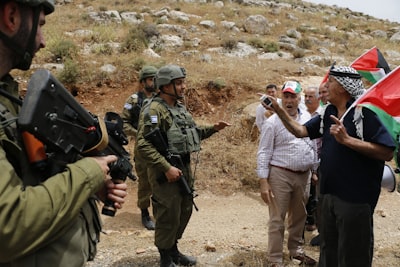Overview
Hostage negotiations have been a recurrent and highly sensitive aspect of the Israeli–Palestinian conflict. Incidents involving the capture and detention of individuals—both civilians and military personnel—by various parties have catalyzed complex diplomatic, humanitarian, and military responses. Managing hostage situations often entails multilateral mediation, indirect talks, and the involvement of regional and international actors.
Definition and Nature
Hostage negotiation refers to diplomatic and tactical efforts to secure the release of individuals held captive, typically for political leverage, prisoner exchanges, or to achieve strategic objectives. In the Israeli–Palestinian context, hostages have included Israeli civilians, soldiers, and occasionally foreign nationals, as well as Palestinian prisoners in Israeli custody who become subjects of negotiation in reciprocal deals.
Historical Context
The use of hostages and prison exchanges in the region dates back decades, including prominently the exchange of Palestinian prisoners for captured Israeli personnel or civilians. Notable examples include the Jibril Agreement (1985), where Israel exchanged over 1,000 prisoners for three Israeli soldiers, and the 2011 Gilad Shalit exchange, involving one Israeli soldier and over 1,000 Palestinian detainees.
Mediators and Methods
Hostage negotiations in the region are often facilitated by third-party mediators—commonly Qatar, Egypt, the United States, and sometimes international bodies such as the United Nations. Proximity talks, indirect negotiations where the parties do not meet face-to-face but communicate through intermediaries, are frequently utilized to reduce direct confrontation and maximize diplomatic flexibility.
Negotiations encompass issues such as ceasefires, aid delivery, the terms and schedule of releases, guarantees against reprisals, and broader conflict resolution. Agreements may be incremental, with phased exchanges and monitoring by international organizations such as the International Committee of the Red Cross (ICRC).
Political and Humanitarian Dimensions
Hostage negotiations are highly politicized, with significant attention paid to public opinion, internal political dynamics, and the humanitarian implications. These talks impact not only the lives of the hostages and their families but also broader military and political calculations, domestic political stability, and the credibility of the negotiating parties. Humanitarian organizations advocate for the humane treatment of captives and stress adherence to international humanitarian law.
Challenges
Negotiations are complicated by deep mistrust between parties, internal political pressures, and the risk that agreements may encourage further hostage-taking. The presence of multiple factions and mediating states adds layers of complexity. Unresolved issues, such as the conditions for a permanent ceasefire or broad prisoner releases, often affect the pace and outcome of negotiations.
Ongoing Relevance
Hostage negotiations continue to be a central feature of periodic escalations in violence between Israel and Palestinian groups, most notably during major conflicts involving Gaza. These incidents serve as focal points for international diplomacy and humanitarian efforts, reflecting both the potential and the limitations of negotiation in protracted conflicts.
See Also
- Prisoner exchange
- Ceasefire agreements
- International mediation in conflict resolution
- Israeli–Palestinian peace process

Comments
No comments yet. Be the first to comment!